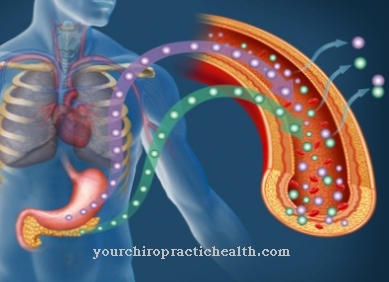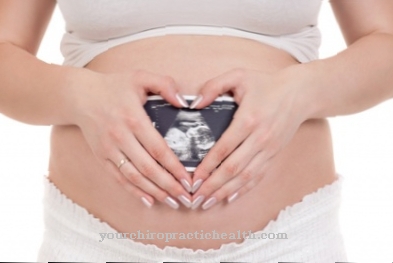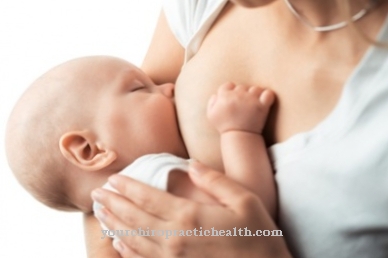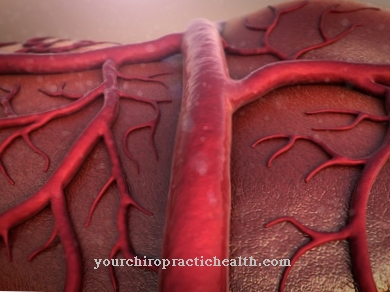With the Toddler phase is the time between the 1st and 5th year of life. This phase in the child's life has a strong impact on the rest of life. The toddler goes through an enormous development in the mental as well as in the mental and physical area.
What is the toddler phase?

During the first year of life, the child learns to crawl and finally to walk. The baby or infant now becomes the toddler. If the infant was still completely dependent on its caregivers due to its restricted mobility, the toddler is now able to actively explore its world.
In the toddler years, the child learns and improves skills such as walking, speaking, sensory perception and interacting with himself and his environment. It makes contacts and actively builds relationships with other people. During this time, toddlers must have the opportunity to explore their world and develop their enormous potential. It looks for its limits and those of others, and needs fixed reference persons who confidently help them to get to know these limits.
During this phase, the toddler also learns to become independent. Other children are becoming more and more important. The toddler phase ends when the child reaches preschool age.
Function & task
The toddler phase serves the child's development on all levels. In contact with themselves and other people, the toddler gets to know himself, his body, his feelings and those of others. By interacting with fixed caregivers, it develops an image of itself.
Building on this, social behavior develops and refines. At the beginning of the toddler phase, there is motor development. The step from crawling to upright gait is an important development in the child's life, on the basis of which a whole new repertoire of movement possibilities and movement patterns is built up.
In the area of gross motor skills, the child develops more and more confidence and speed while running. It learns to run while at the same time training its coordination. Jumping, running backwards and hopping expand the repertoire. With the help of these skills, which are constantly practiced and improved throughout the toddler phase, the child moves through the world. It thus expands its scope of action and the possibilities to become active in the world itself.
Later, the area of fine motor skills comes to the fore. At the beginning of the toddler phase, the children use the tweezer handle to grasp and gradually replace it with the handle with their fingertips. These skills are fundamental to all cultural techniques because they enable you to hold a pen and use tools or instruments.
Language, too, makes tremendous progress during the early childhood phase. From the first words, which are usually uttered towards the end of the first year of life, the development progresses towards the formation of the first sentences. Towards the end of the toddler phase, there is usually an understandable pronunciation and an extensive vocabulary that is used in the formation of complete sentences.
Illnesses & ailments
The early childhood phase is a time of rapid development in all areas. The child constantly experiences new experiences on a physical, emotional and spiritual level and makes many leaps in development. These times demand a high level of adaptability, which does not always work right away. Therefore, under certain circumstances it can lead to adjustment difficulties and development delays.
During the leaps in development, the children are often tired, tearful, very clingy and overwrought quickly. You then need sufficient rest, time to process and security through the care of a trusted caregiver. In the time between the leaps in development, the newly learned skills manifest themselves and there is more calm.
The toddler needs certain requirements to develop. This includes, among other things, a few, stable and trusted caregivers. This is particularly important in the first three years. If during this time there are repeated breakups or a constant change of caregivers, this can have fatal effects on the child's ability to bond and has consequences for the whole of life. This is also the case when the parents or other important persons themselves are unable to respond to the child's emotional needs. Then attachment and relationship problems may arise in later life.
The child needs certain vitamins and minerals for mental as well as emotional and physical development. A good diet is therefore one of the main requirements for healthy development in the early childhood phase. Otherwise, malnutrition can lead to bone damage, nerve problems and delayed brain development. Brain development is also often associated with emotional problems.
And vice versa, repeated emotional stress, e.g.family problems or too much media consumption can influence the emotional and mental development of the child and, in the worst case, impair it. In order to develop well at the motor level, the child must be able to move. Here all caregivers of the child are asked to regularly offer and enable the child to experience as diverse a range of movement as possible.













.jpg)

.jpg)
.jpg)











.jpg)